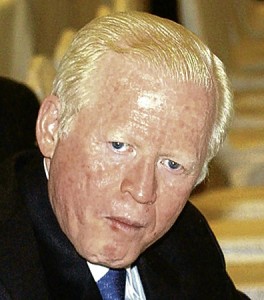
FEELING THE HEAT Former Washington DC mayor and now council member Marion Barry faces criticism for “racist” remarks.
Former Washington DC Mayor and currently council member, Marion Barry, decried the increasing number of immigrant nurses in US hospitals, singling out the apparent disparity in the great number of Filipino nurses currently staffing such care facilities vis-à-vis local nurses. He somehow sees this as a “bad” situation.
In his attempt to encourage schools and hospitals to hire more local teachers and nurses who are “residents of the District of Columbia,” he made disparaging comments against Filipinos. The comments seemed offensive and xenophobic, succeeding only in dividing his constituents and reinforcing the stereotype that immigrants are to be feared, that they are out to “steal” US jobs, that they are a threat to Americans’ economic well-being and way of life.
What he said
During one budget meeting recently, the former mayor was reported to have criticized the city for not producing enough medical professionals of their own. He was quoted as saying: “It’s so bad, that if you go to the hospital now, you’ll find a number of immigrants who are nurses, particularly from the Philippines … And no offense, but let’s grow our own teachers, let’s grow our own nurses, and so that we don’t have to go scrounging in our community clinics and other kinds of places, having to hire people from somewhere else.”
As a public official, Barry should have been more discriminating in his public pronouncements.
It is true that most US hospitals and school districts have quite a number of immigrant health care workers and teachers in their employ. What Barry fails to understand or acknowledge is that Filipinos have always filled the shortages of nurses and teachers in the United States for many years now.

QUICK ON THE DRAW Philippine Ambassador to the US Jose Cuisia issued a statement calling Barry’s comments “intolerant and narrow-minded.”
Immigrating through an offer of employment by a US company is not as easy as filling up a job application. The US employer has to go through a rigorous process of petitioning all these nurses and teachers, ensuring that no US citizens or residents are affected by their hiring. Necessary safeguards have already been put in place by the US Department of Labor to protect the interests of local residents.
Filipino health care workers have contributed significantly to the health care industry in the US, specifically when there was a severe shortage of nurses.
Locals first
The same is true of Filipino teachers. If there are available and qualified local employees to fill up open teaching positions, the districts would not have to go through the rigorous process of applying for labor certifications and immigration petitions for Filipino teachers. As a matter of policy, when teachers’ services are no longer needed, their temporary visas are not extended or are revoked by the US Citizenship and Immigration Services.
Contrary to the logical inferences that could be made from Barry’s uninformed and offensive commentaries, there is no displacement of local workers by the hiring of Filipino teachers and nurses.
Shortage occupations
The registered nurse is still categorized as a shortage occupation by the US Department of Health.
This position still falls under the “Schedule A” occupations where the need for recruitment of native-born nurses need not be documented. Registered nurses may apply directly for an immigrant visa petition.
Unlike in the last decade, however, registered nurses no longer occupy a priority position in immigrating to the United States. There is now a long wait for nurses under the third employment category. The delay is not because there is no longer a shortage but rather it is a result of “oversubscription” of visas in this category. Filipino nurses who are in line for immigrant visa petitions may still have the opportunity to receive their working visas or green cards when their priority dates becomes current.
(Tancinco may be reached at law@tancinco.com or at 8877177 or 7211963)

